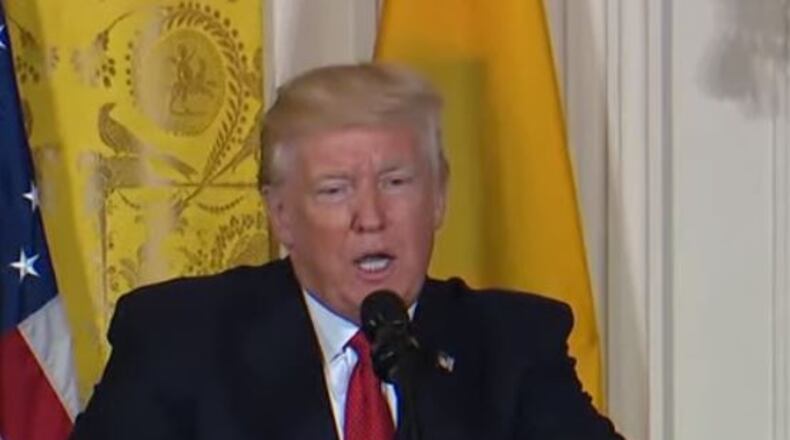As President Donald Trump announces his plans on Monday to reform the nation's air traffic control system by spinning it off into a private corporation, a look at Mr. Trump's own budget shows the change would not save taxpayers any money - in fact, it would add an estimated $46 billion to the deficit over seven years.
"To accommodate growing air traffic volume and meet the demands of aviation users, the Administration proposes to shift the air traffic control functions to a non-profit, non-governmental entity," the President's budget states.
The changes include an end to aviation excise taxes that are used to finance the current air traffic control system - those tax revenues would be worth more than $115 billion over seven years, so getting rid of that tax would increase the deficit.
The feds would save an estimated $70 billion by shifting 30,000 workers off the federal payrolls - giving you the $45.6 billion overall increase the federal deficit.
Here are the numbers from the President's budget that he submitted to Congress in late May:
The Trump budget documents don't focus on those deficit numbers.
"This transformative undertaking will create an innovative corporation that can more nimbly respond to the demand for air traffic services, all while reducing taxes and Government spending," the Trump Administration argues.
Democrats have mocked the idea of selling off the nation's air traffic system, saying the President isn't coming up with new money for needed infrastructure improvements.
"It's tax cuts for financiers, privatizing public property. Not infrastructure," said Sen. Brian Schatz (D-HI).
The Monday announcement by President Trump is part of a message this week that is focused on the President's infrastructure plans - though the White House still has not produced details on how it will fund new spending on roads, airports, bridges and more.
Mr. Trump has talked for months about a $1 trillion infrastructure effort, leveraged by up to $200 billion in federal spending.
But, no specifics have been set out on how that $200 billion would be funded.
Also, if you look closely at the above budget graphic, you will see that the Trump budget actually reduces spending on roads and bridges by $95 billion over ten years from the Highway Trust Fund.
That $95 billion cut seems unlikely to gain approval in Congress, as new spending for roads and bridges is something that has strong support in both parties - the issue continues to be, if that spending is expanded, how will it be paid for?
About the Author
The Latest
Featured




